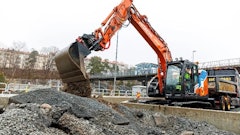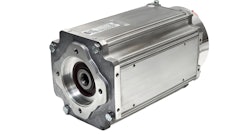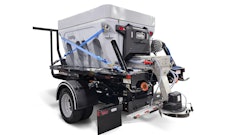
The construction industry has undergone unprecedented change since the early days of the pandemic. Many construction business owners were forced to conduct operations in ways they had not previously considered, and the industry saw rapid adoption of technologies capable of digitally bringing multiple parties together in a single online space.
Buying, selling and servicing of equipment was no exception. Yet, while the pandemic augmented a shift to online heavy equipment sales and purchases, it was a transition already in progress.
According to Howard Hawk, president of bidadoo, an online heavy equipment, truck and industrial equipment marketplace, online buying and selling had seen a steady, consistent growth over the past couple of decades. However, the pandemic led to “a monumental shift in buyer behavior” as users were forced to find ways to obtain or sell high-value used assets during the shutdown.
“With the pandemic, I feel like the adoption rates sped up by 10 years… and I don’t think it’s going back,” Hawk states. “I see a huge acceleration in online buying behavior and acceptance and especially for larger, complex transactions.”
Pandemic-related factors continue to push buyers and sellers online — most notable of which is the limited availability of both new and used machines.
Shortages Drive Up Both Demand and Prices
As the global economy started to emerge from the pandemic, steel producers and other component suppliers began the process of ramping up production. But this takes time and has been hindered by the slow return of employees and substantial exodus of many others from the workforce.
Then, there’s the global supply chain. Fewer workers, insufficient numbers of containers and ships and logistics nightmares contributing to pileups at ports have produced disruptions that could take months to resolve.
The result is extended backlogs for the materials and components that go into new domestically produced equipment and vehicles and delayed shipments of new units manufactured outside the U.S. Dealer lots have become more sparsely populated and new equipment order backlogs have steadily lengthened.
“Obviously, what it means is a much tighter supply but a lot more demand,” says Hawk. “With a lot more demand, it’s driving significantly increased asset prices/price realization. So, there’s never been a better time to sell equipment than now.”
Prices are up 20% to 30% or more in some product categories. “It’s really astonishing to see the change. Now is by far the best time to sell assets if you need to sell them,” says Hawk.
“The problem is on the supply side,” he continues. “Everybody is holding onto their equipment because they’re utilizing it. So, there’s a much tighter supply of things to sell. And that’s across all the major customer sets that we look at.
“Manufacturers are definitely having a tough time pumping out new equipment because of supply chain and parts challenges, so they’re not delivering as much new equipment to dealers and rental customers, which are a couple of our big categories of sellers,” Hawk points out.
Rental companies are experiencing some of the highest utilization rates they’ve seen in recent years. But challenges obtaining new equipment to replace older models have them keeping machines in fleet longer. “They’re able to rent and utilize almost every piece of equipment that they can put their hands on, so they’re not in selling mode,” says Hawk.
Equipment dealers are facing their own problems. “The dealers are not seeing as much new equipment coming from the manufacturers… yet they’re trying to keep up with incredible end-user demand,” Hawk comments. “It’s a real challenge for them.”
While the end of the peak construction season in much of the U.S. should ease some of the pressure, Hawk foresees ongoing shortages. “I think that things have… changed so significantly that I do think we’re going to see this have impact over the next year or more,” he predicts.
Online Provides More Options
Fortunately, online marketplaces are helping construction business owners find needed equipment and resources, while also minimizing the costs of sale and extending the reach of sellers to a broader realm of potential bidders.
bidadoo is in an especially unique position to deliver these services and more thanks to a recent expansion of its long-term relationship with eBay. The bidadoo marketplace has been housed on eBay’s platform largely since its inception over 18 years ago; now, the global online auction powerhouse has become a strategic partner and investor.
“We’re excited… to expand that relationship into a strategic partnership with eBay invested in bidadoo, recognizing that together we provide a very compelling marketplace to buyers and sellers around the world,” says Hawk. “What we do really fits into the DNA of eBay because each asset is a one-of-a-kind used capital asset, typically with a lot of good value left. eBay is the largest online auction platform in the world, so it’s a great fit for them.”
Learn more: How eBay Investment Will Boost bidadoo's Options for Buying and Selling Equipment Online
According to Hawk, the partnership will offer advantages to all bidadoo users. “On the seller side, it’s going to make it much easier for large fleet companies and anyone selling capital assets to get onto and utilize the power of eBay,” he says. “We’ve always had a marketing and commercial relationship, but now we’ll be building tools, doing integrations and providing additional selling options… so sellers can more readily utilize the system and all the different channels and options that eBay provides.”
This includes providing access to eBay’s more than 150 million registered users globally. “What the strategic partnership is going to enable for the sellers is to be able to bring higher net returns on their equipment,” Hawk asserts.
On the buyer side, the partnership will provide a significantly improved selection of inventory to the platform, along with more alternatives for obtaining that equipment, including retail, “buy it now” and “make an offer” options. A further benefit will be parts and attachment availability.
“eBay is one of the biggest parts and attachment sellers in the world of heavy equipment,” says Hawk. “Bringing the machines, the parts and the attachments together is going to provide a very effective, very efficient ecosystem to the buyer.”
Other service offerings will be expanded, as well, along with assurances and guarantees, financing, logistics management and more. “We’re going to make the process a lot easier for buyers,” says Hawk. “One-stop shopping to buy complex equipment and machinery is what customers have come to expect from a good online marketplace.”
bidadoo expects to provide that and more as its relationship with eBay continues to evolve. “All of the buyers out there, [in order] to continue to run their businesses, will be very excited to have more… trusted used options in the coming months,” Hawk assures.




















